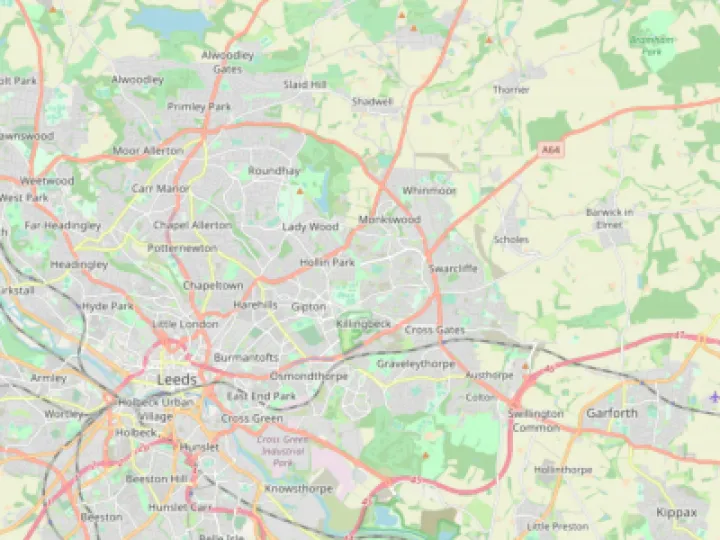Stories of hurt and Hope: Reflecting on Racial Justice Sunday
By Paul Coleman, Local, preacher on trial
Faith at the Margins Lead for Leeds Church Institute.
Margins@Leedschurchinstitute.org
For Racial Justice Sunday I was privileged to lead worship at Roscoe Methodist Church in Chapeltown. As a white preacher speaking in a black majority church, I was very nervous as I have never experienced discrimination based on race or ethnicity. The focus of the service was that we are all made in God's image, no matter our race, ethnicity, gender, social class or disability. We are all unique and something of God is reflected in every human who ever has, and ever will, live. Part of the challenge of the service for all of us was to look for and see the image of God in the faces of all whom we come into contact with in our lives, no matter how different they may be to us.
As part of the service I invited people from the congregation to share their own stories and experiences, both positive and negative, of life in Leeds as a person of colour. It was deeply humbling and, at times, discomforting to hear some very painful stories and experiences of people in the community. However, alongside these difficult and challenging stories, several people also spoke of the hope they see in, and for, their children and young people, as well as the positive changes they have seen in their own lifetimes. We brought all these experiences together, acknowledging them as equally valid and offering them to God, in whom we have our hope for the future and for an end to injustice and oppression.
The sermon was deliberately short and based around three readings:
Genesis 1: 26-28
Then God said, "Let us make humans in our image, according to our likeness, and let them have dominion over the fish of the sea and over the birds of the air and over the cattle and over all the wild animals of the earth and over every creeping thing that creeps upon the earth."
So God created humans in their image, in the image of God they created them; male and female they created them. God blessed them, and God said to them, "Be fruitful and multiply and fill the earth and subdue it and have dominion over the fish of the sea and over the birds of the air and over every living thing that moves upon the earth."
Micah 6: 6-8
"With what shall I come before the LORD and bow myself before God on high?
Shall I come before him with burnt offerings, with calves a year old?
Will the LORD be pleased with thousands of rams, with ten thousands of rivers of oil?
Shall I give my firstborn for my transgression, the fruit of my body for the sin of my soul?"
He has told you, O mortal, what is good, and what does the LORD require of you
but to do justice and to love kindness and to walk humbly with your God?
Galatians 3:26-28
For in Christ Jesus you are all children of God through faith. As many of you as were baptized into Christ have clothed yourselves with Christ. There is no longer Jew or Greek; there is no longer slave or free; there is no longer male and female, for all of you are one in Christ Jesus.
Sermon
Noticing the ways others are different to ourselves is one of the things that we are all very good at. Sometimes we recognise and celebrate that difference and diversity, but sadly, all too often it instead leads to injustice.
Yet as our first and last readings for today emphasise, we are all made in God's image and are all one in Christ. The reading from Galatians could easily be expanded to include all sorts of differences and what we refer to as "protected characteristics" around ethnicity, gender and sexuality or disability. The closest we get to a reference about race in this reading comes from the reference to "neither Jew nor Greek". It's perhaps easy for us to forget how diverse life was for people living in the Roman Empire. Galatia was in part of what is now Turkey. The region was settled by Celts from Europe, but had borders with the Mediterranean cultures, as well as contact with African states from just across the Mediterranean sea. These people would have been used to huge amounts of racial diversity, to the extent that it seems likely that racial diversity was not a major factor in Paul's thinking. The focus of the letter was on whether the gentiles needed to follow Mosaic law to be part of the Christian community. Paul's answer to this dilemma is in essence very simple: as followers of Christ, there were no distinctions between them and they should treat and respect each other as equals, regardless of social position, ethnicity or gender.
So what of our reading from Genesis?
If we are truly created in the image of God, what does that say about our value as human beings and the way in which we should treat each other?
Here I am going to borrow from C.S. Lewis – that there are no "ordinary" people, even the most obscure person is not ordinary to God but is instead special and unique and worthy of being celebrated. Each of us has something to contribute to the life and work of the church that nobody else can bring. A church without the diversity that God deliberately created would be incomplete.
If each of us is created in the image of God and reflects, however imperfectly, something of our creator. Then what does it say of us when we can go from praising God for his love and Grace and the beauty we see in creation, to mocking and mistreating those who God has created and calls beautiful, simply because they look or act in a way that is different to us? Or because they come from a place or a group with which we would not normally associate. Micah reminds us of this – that all our hymns and prayers on a Sunday morning are empty and worthless unless they are connected to our actions. What use is faith if it does not impact the way we live with and treat those around us? But, of course, this is much easier said than done; it is much easier for us to focus on our differences and to fail to see and respond to the image of God in the faces of those we meet.
Fortunately, we have the perfect example of how to do this in Jesus. Fully God yet fully man, able to overcome the human tendency to look for difference and instead bringing and showing God's love to all, regardless of ethnicity, social standing, disability or gender. All came to Jesus, and none were turned away.
This, then, is the hope we have for an end to injustice and oppression in this world. Our hope that we too can overcome our own fear of anyone who is different to us. Jesus Christ, the God who comes close and walks besides us, who accepts and welcomes us as we are, who rages against the injustice in the world, encouraging and supporting us to speak and act against it.
Final Reflections
Over the last couple of days I have been reflecting on this service, and I have come to this conclusion: We are all uniquely and deliberately created in God's image, and all reflect something of the nature of God. While it is inevitable that we will see differences when we look at each other, we should remember that God created us to be diverse. It is that very diversity that enables us to learn more about the God who created us. There are hundreds of books and movies that portray dystopian futures in which people's individuality is suppressed and to be honest I can think of nothing worse than a world or a church in which everyone is like me. (I'm sure other people also find that a scary thought). The diversity of all God's people and, indeed, the diversity we see in Creation is a source of beauty and strength to the world, bringing us closer to a time in which injustice and oppression are no longer a fact of life.
In my current role at Leeds Church Institute I am working on what it means for us all to be made in God's Image, working around issues of Disability, Gender and Sexuality and Mental Health. I will also be working with my colleague Dwayne Hutchinson who is the Faith and Racial Justice Lead and Bronagh Daly who is the Faith and Creativity Lead.
Quick Links
Registered Charity no. 1131455
Get In Touch
circuitoffice@leedsnandemethodist.org.uk
07400 601143
Circuit Office
Lidgett Park Methodist Church
Lidgett Place
Leeds
LS8 1HG


